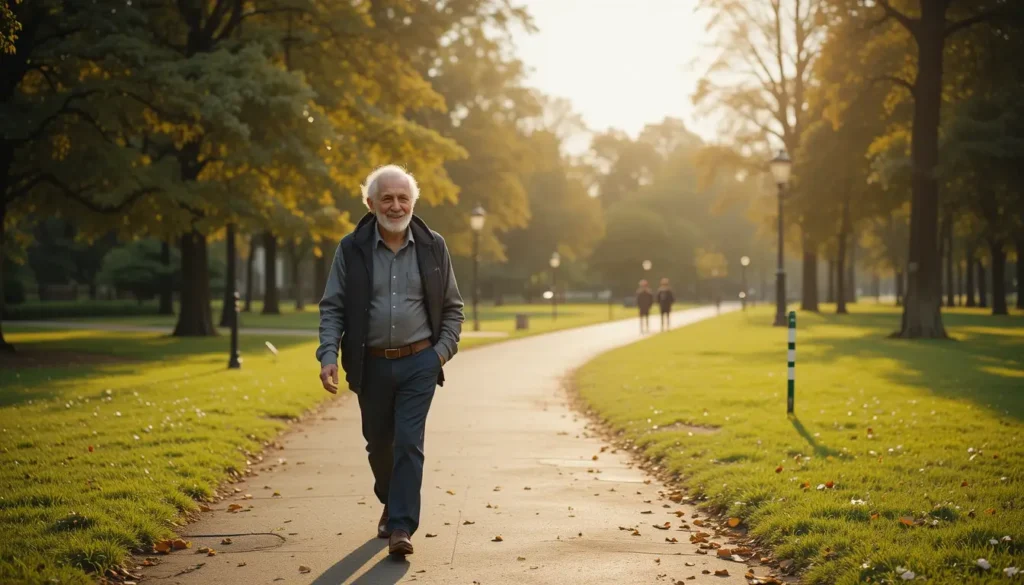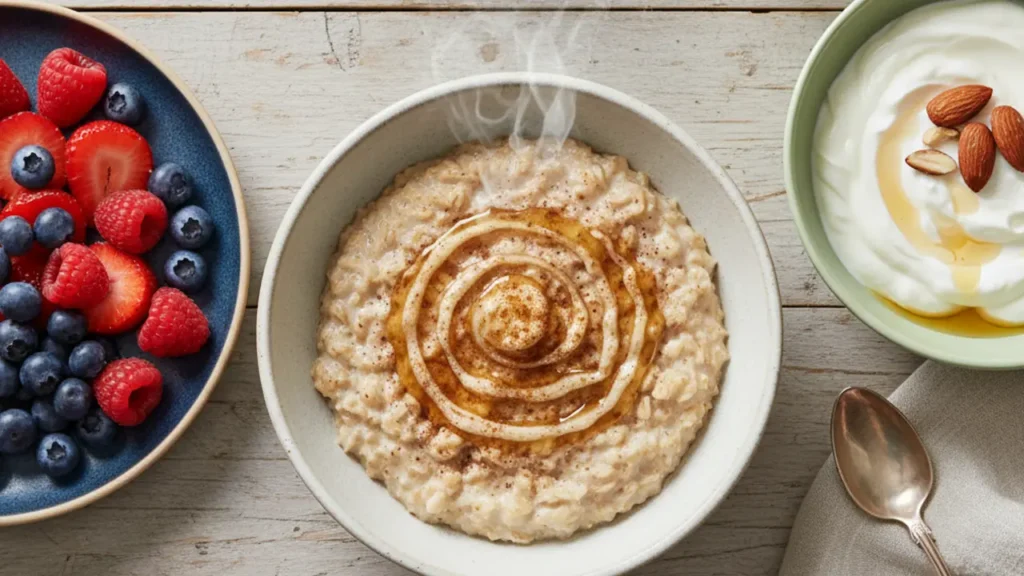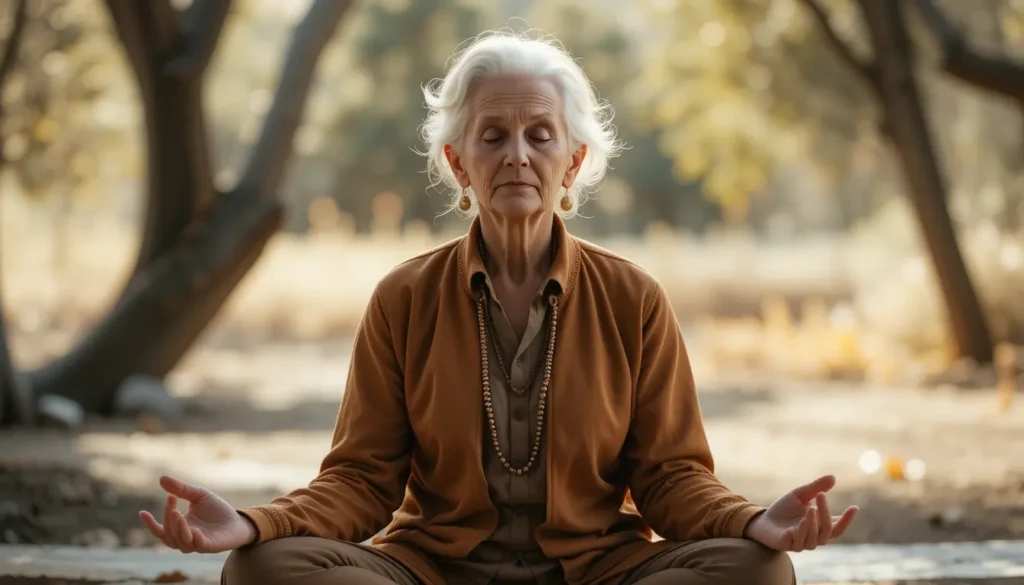Your morning sets the stage for your whole day. If you wake up tired and scattered, it follows you. If you wake up steady and strong, everything feels better. The way you start your morning can decide how much energy, focus, and joy you carry through the day.
As you grow older, your body and mind need steadier care. Small choices make big differences in health. A solid morning routine can help you move better, think sharper, and feel calmer. It gives you structure and control, which is key to healthy aging.
You might wonder what the best routine looks like. You may think it is too late to start something new. The truth is, your body responds at any age. This guide will walk you step by step through a healthy morning system built for seniors.
Building the Routine Layer by Layer
Wake Up with Purpose
The first step to a healthy morning begins before you even leave your bed. Waking up at the same time every day helps your body’s internal clock stay in rhythm.
This rhythm, known as your sleep-wake cycle, influences energy, mood, and even digestion. Seniors who stick to a regular wake-up time tend to sleep better at night and feel steadier during the day.
When you first open your eyes, avoid jumping up quickly. Standing too fast can cause a sudden drop in blood pressure, which may lead to dizziness or unsteadiness. Instead, take a slow approach.
Sit on the edge of your bed, place your feet flat on the floor, and let your body adjust for a minute. While sitting, stretch your arms gently above your head, roll your shoulders, and take a few slow breaths. This simple act wakes up your muscles, joints, and lungs, preparing them for the day.
The next step is hydration. Your body loses fluids through breathing and small amounts of sweating during sleep. This leaves you slightly dehydrated by morning, which can make you feel sluggish. Drinking a glass of water first thing in the morning helps restore balance.
Water supports digestion, clears toxins from the body, and wakes up your metabolism. Seniors who hydrate early often notice sharper thinking and better circulation throughout the day.
If plain water feels difficult, try warm water with a squeeze of lemon. This small variation can aid digestion and provide a fresh taste. The key is to start with hydration before coffee, tea, or food. By making water your first drink of the day, you give your body a clean start.
Gentle Movement to Unlock the Body
After waking and hydrating, the next focus is gentle movement. The body grows stiff after hours of lying still. Muscles, joints, and ligaments need a wake-up call, and gentle activity provides it. Movement in the morning is not about hard workouts. It is about preparing your body for safe, steady motion throughout the day.
Begin with simple range-of-motion exercises. You can roll your shoulders forward and backward, turn your head slowly side to side, and rotate your wrists.
These movements lubricate the joints and ease stiffness. Gentle arm lifts, where you raise your arms overhead and lower them slowly, stretch the muscles across your chest and back. Each motion should feel comfortable, never forced.
Next, add light walking. You do not need to go far. Walking inside your home, around your garden, or down the hallway can be enough to activate circulation. The act of moving your legs and engaging your balance reduces stiffness and builds confidence in walking ability.
Walking also stimulates your cardiovascular system, which means more oxygen and nutrients reach your muscles and brain.
For extra benefit, include stretching. Focus on large muscle groups such as the legs, back, and ankles. Stretch your calves by gently pressing one foot behind the other while standing at a wall.
Bend forward slightly to stretch the back, but only to a point of comfort. For ankles, sit on a chair and rotate your feet slowly in circles. These small stretches help protect against falls by strengthening your range of motion and improving balance.
The goal is not speed or intensity. The goal is smooth, steady movement. Seniors who practice these morning motions report less stiffness, better balance, and more energy. This step prepares your body to take on daily tasks with ease.
A Balanced Morning Meal
Food is more than taste. It is fuel that powers your body and brain. Skipping breakfast can leave you weak, lightheaded, or irritable. Seniors who eat a balanced breakfast tend to have better energy, stronger bones, and steadier blood sugar throughout the day.
Protein is the foundation. Eggs, yogurt, cottage cheese, or a handful of nuts provide protein that repairs muscles and keeps you full longer. Without enough protein, you may feel hungry too soon or struggle with muscle loss, which is common as people age.
Adding a steady source of protein every morning can slow this decline and support strength.
Fiber is just as important. Whole grain bread, oatmeal, or fruit gives you fiber that supports digestion and protects heart health. Fiber also helps regulate blood sugar, which prevents sudden crashes in energy. Berries, apples, and pears are gentle fruits that bring both vitamins and fiber without too much sugar.
Do not forget healthy fats. Avocado, seeds, or a small portion of olive oil support brain function and heart health. Healthy fats also reduce inflammation, which can ease joint pain. They work together with protein and fiber to create a steady energy release.
Portion size matters. Large heavy meals in the morning may leave you tired. A smaller, balanced plate works better for most seniors. If a big breakfast feels overwhelming, split it into two smaller meals—one early, one mid-morning. The key is balance, not size.
Hydration should continue with your meal. Herbal tea or warm water with lemon supports digestion without the jitters of strong coffee. If you enjoy coffee, keep it moderate and always pair it with water. The goal is to start your digestion gently, not stress it.
What should you avoid? Heavy sugar and processed snacks. Pastries, sweet cereals, and processed meats may taste good at first, but they lead to energy crashes and long-term health risks. Choosing whole, simple foods is the most reliable way to fuel your day.
Mental Activation
Your brain needs daily exercise the same way your body does. Morning is the perfect time to give it a boost. Just a few minutes of mental activity can improve focus, memory, and mood for the rest of the day.
Reading is a simple option. A few pages from a book, a newspaper article, or something educational online stimulates your brain. It helps you stay informed and keeps your vocabulary and memory active. For seniors, this small habit reduces the risk of mental decline.
Puzzles are another tool. Crossword puzzles, number games, or word searches activate different parts of your brain. They require focus, problem-solving, and recall. These activities may seem small, but they keep the brain sharp and flexible.
Writing also builds brain health. Keeping a journal each morning can track progress, moods, and goals. Writing down thoughts clears the mind and reduces stress. Some seniors use journals to note what they are thankful for, which boosts emotional well-being.
Learning something new each day adds an extra layer. Listening to a podcast, watching an educational video, or studying a new topic creates growth. This sense of progress builds confidence and joy. It reminds you that learning has no age limit.
For mental calm, try breathing exercises or meditation. Spend five minutes focusing on slow, steady breaths. This practice reduces stress and trains your mind to focus. Over time, it can lower blood pressure and improve sleep.
The combination of stimulation and calm creates balance. You sharpen your mind while giving it space to rest. Seniors who activate their brains in the morning report feeling clearer, more focused, and more positive throughout the day.
Connection and Purpose
Good mornings are not only about the body and brain. They are also about connection and meaning. Social bonds and a sense of purpose are vital for healthy aging. Without them, mornings can feel empty. With them, mornings feel alive.
Connection can be simple. A short call to a family member, sending a text to a friend, or greeting a neighbor during a walk adds value to your day. Human connection lowers stress, reduces the risk of depression, and strengthens memory. Seniors with regular social ties have higher life satisfaction and longer lifespans.
Purpose is just as important. Waking up with something to do gives you motivation. The task does not need to be big. Tending a plant, cooking a meal, finishing a craft, or organizing photos all count. Each small goal provides direction and reward.
Having a morning plan helps fight boredom and loneliness. It builds a sense of accomplishment. Seniors who set one or two goals for the day report more energy and better mood. The act of moving forward, even with simple steps, feeds self-confidence.
You can also combine purpose with connection. Joining a group, volunteering, or sharing a hobby with others builds both social and personal meaning. Whether it is a call to a loved one or a new project in the home, connection and purpose create mornings filled with life.
Turning Routine into a System
A single habit helps, but the real strength comes when all the habits work together. When you wake up at the same time, your body knows what to expect. Hydration gives your system a fresh start. Gentle movement warms your muscles and keeps your joints steady.
A balanced meal gives lasting fuel. Mental activation sharpens focus, and social connection adds purpose. Each piece is important, but together they form a system.
This system is more powerful than any single step. Think about how your body responds when everything is in sync. You wake up and hydrate, which helps circulation. Because your body is hydrated, movement feels smoother. After movement, your appetite is ready, so a balanced meal fuels your muscles and brain.
That fuel supports mental activity, which keeps you alert. When you end with connection and purpose, your emotions rise. One step flows into the next, and the result is balance.
The key word is consistency. A strong morning routine does not depend on motivation alone. It grows from doing the same steps, day after day. With repetition, your brain and body adapt. Waking up at the same time becomes automatic.
Drinking water feels natural. Moving gently becomes second nature. Eating balanced food feels normal instead of forced. The more you repeat, the less effort it takes.
Over time, consistency builds stability. Your body feels stronger because it is cared for daily. Your mind feels sharper because it is trained daily. Your emotions feel calmer because connection and purpose guide you.
The small actions you do in the morning ripple through your whole day. Instead of mornings feeling random, they feel steady and reliable. That sense of control is one of the greatest gifts you can give yourself as you age.
A good morning routine is not about doing everything at once. It is about steady steps. Add one habit, then another. Adjust to your comfort.
Your health at this stage depends on rhythm and balance. By building the right start, you give yourself better days ahead. Your mornings can become your strongest tool for healthy aging.




